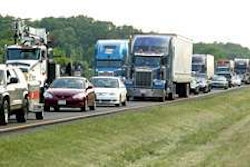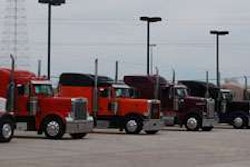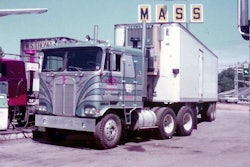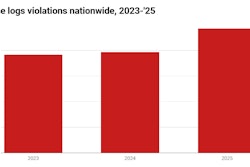JBS Carriers had started installing electronic on-board recorders on 40 percent of its trucks and found the devices improved productivity when it received a federal order to implement the devices fleetwide.
On Nov. 4, the Federal Motor Carrier Safety Administration announced it had ordered JBS Carriers of Greeley, Colo., to put EOBRs on its more than 700 trucks by March.
JBS spokesman Chandler Keys said the fleet’s newest trucks were the first to have this equipment this year. “It improves productivity,” Keys said. “We can access real-time data.”
After the agency’s rule became effective June 4, a carrier with a 10 percent or greater violation rate for hours-of-service regulations will receive an EOBR remedial directive, requiring the devices on every truck in the fleet.
A FMCSA spokeswoman said she didn’t know how many other carriers have received this order, or if JBS is the first to be affected.
The agency issued the order for JBS after it found serious violations of HOS rules and CDL requirements. In the FMCSA’s Oct. 7 final settlement agreement, it cited JBS for 102 counts of falsifying drivers’ HOS records and three counts of allowing drivers with a suspended, revoked or canceled CDL to operate a motor vehicle.

The FMCSA said if the carrier did not comply by deadline, it would face $81,780 in civil fines, although Keys said agency officials agreed to reduce fines to $16,000.
The company, a division of JBS USA, one of the world’s largest protein companies, must also train drivers on using the devices and develop a safety management system integrating EOBR data into drivers’ HOS oversight.
In April, the agency issued a final rule requiring EOBR for two years on carriers with a 10 percent or greater occurrence of HOS non-compliance in a single compliance review. The American Trucking Associations supports this rule, which has a June 4, 2012, deadline.
The FMCSA estimated the EOBR order would affect approximately 5,700 motor carriers after the first full year of implementation, according to an August congressional report. The agency will consider, through a notice-and-comment rulemaking, how many more carriers will come under the order.
The U.S. Court of Appeals for the Seventh Circuit registered the suit brought by Owner Operator Independent Drivers Association against the FMCSA June 3. The plaintiff filed its brief Oct. 7, which asked the court to vacate the EOBR rule and require the agency do further consideration consistent with the court’s findings.
OOIDA argued it is unproven the devices can accurately and automatically record a driver’s HOS and duty status. Also, it said that given trucks are driver’s home on the road, EOBR violates a reasonable expectation of privacy in the home.
On Sept. 29, Sen. Mark Pryor (D-Ark.) introduced a bill to mandate EOBR on commercial vehicles. The Commercial Driver Compliance Improvement Act, or S. 3884, was referred to committee with one co-sponsor.









